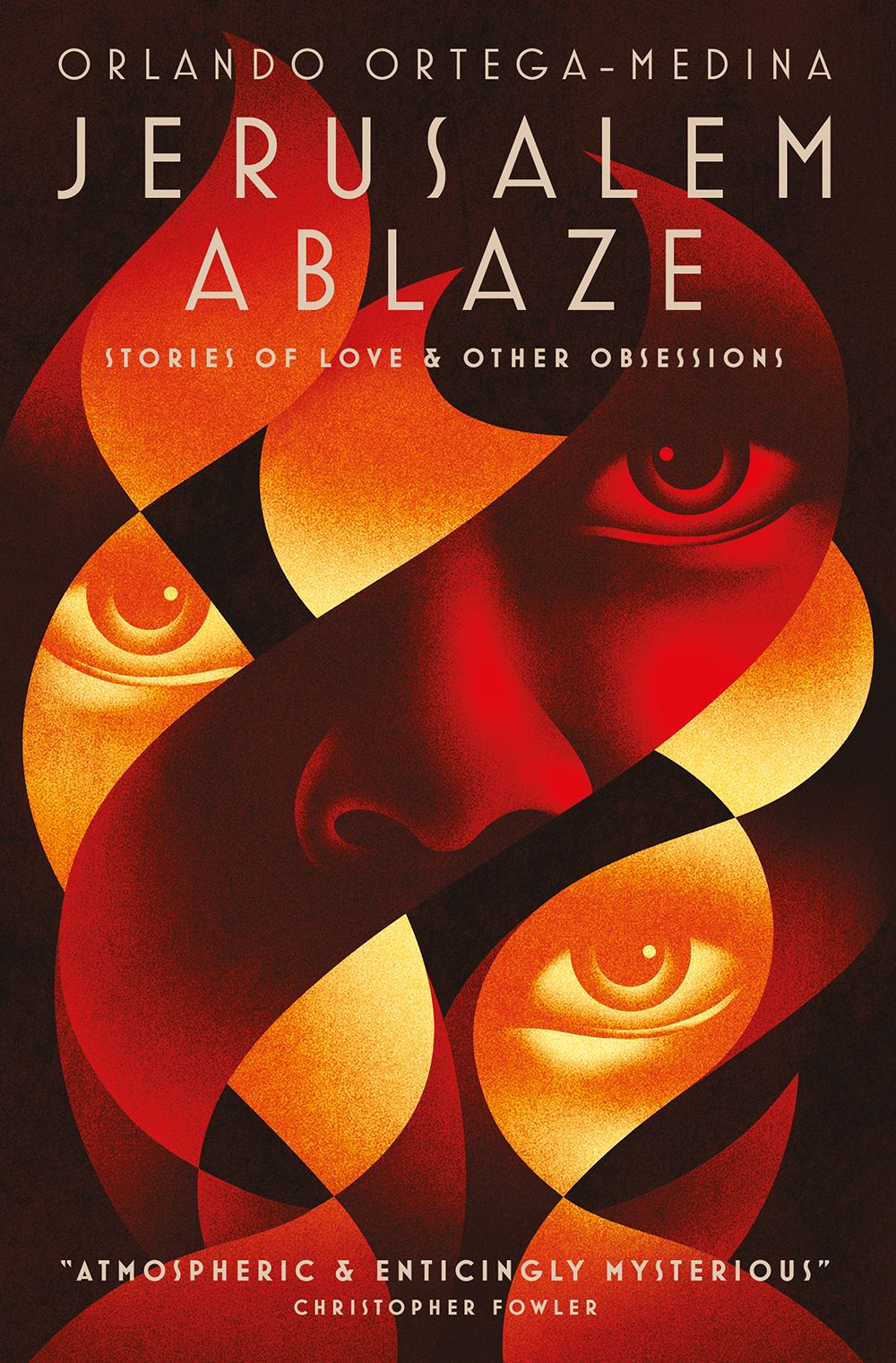
In Jerusalem's Old City a young priest and a dominatrix converse in the dying light; on Oregon's windswept coast a fragile woman discovers a body washed up on the beach after a storm; and in Postwar Japan a young protege watches his master's corpse burn, with bitter thoughts blazing in his mind.
Jerusalem Ablaze: Stories of Love and Other Obsessions collects thirteen eclectic works of dark fiction, taking the reader from Los Angeles to the eastern townships of Quebec, and from Tokyo to Jerusalem.
Ortega-Medina's characters are flawed, broken individuals, trying their best to make sense of their lives as they struggle with sexuality, death, obsession, and religion. Sometimes bleak, occasionally violent, and often possessed of a dark humour, this major debut explores the imperfections of life and the unpredictability of death.
SHORTLISTED FOR THE POLARI FIRST BOOK PRIZE 2017
Ikeda Yataro’s body was cremated today. May his soul be forever damned. The flames claimed his corpse and his roses – all that was left of the man. It had been one week to the very day of his funeral that he had ended his miserable life in the most honourable way he knew.
That Ikeda killed himself is no secret. In fact, his suicide has proved to be an occasion for somber celebration within the business and artistic community. The death of yet another celebrated personage has helped keep alive the cult of honour, proof the Samurai warrior spirit is still alive in post-war Japan.
But I take another view of the matter. It’s not that I’m at all put off by the idea of suicide. It’s certainly a reasonable option when facing an unacceptable situation, and I admit that I myself have entertained romantic notions about the glories of an honourable death. But it is the particulars of such a death that now disturb me.
Prior to my witnessing Ikeda’s suicide, I confess to having had my own little sadistic fantasies involving death; specifically, fantasies involving what I perceived to be the more erotic aspects of death.
I remember thrilling to Mishima Yukio’s description of a blood-drenched soldier dying on the battlefield, of his desire to bend down to kiss the soldier’s mouth as he lay gasping his last mortal breath. It was the blood that drew me.
I remember my obsessive desire to learn all the details about Mishima’s own death by seppuku. I can recall the stinging jealousy I felt toward the young men who had enjoyed the privilege of witnessing their leader as he ripped open his belly, his bowels slipping out of the wound into a pool of his own blood. Kawabata’s death by gas inhalation later that same year seemed to me an act of mere cowardice by comparison. But none of my endless ruminations could prepare me for Ikeda’s suicide.
| Language | Status |
|---|---|
|
Italian
|
Already translated.
Translated by Yelena Fioretti
|
|
Spanish
|
Translation in progress.
Translated by Lilia Janette Trejo
|